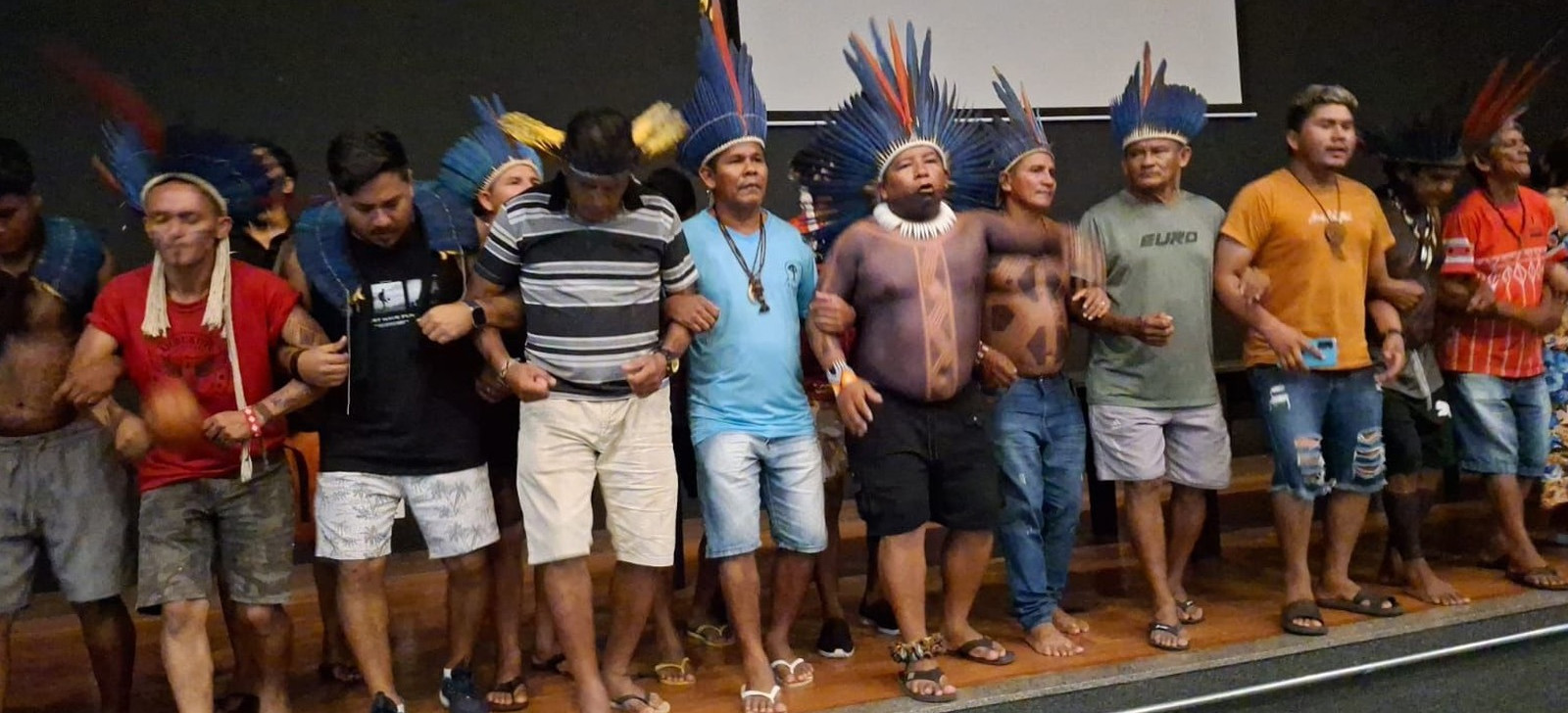Indigenous enter fourth day of protest at COP30 host city
18 de January de 2025

By Fabyo Cruz – From Cenarium
BELÉM (PA) – Belém is experiencing intense social mobilization as the occupation of the Pará State Secretary of Education (Seduc-PA) enters its fourth day this Friday, January 17. Indigenous groups from various ethnicities and regions of the State are protesting against Law 10,820/2024, sanctioned by Governor Helder Barbalho (MDB). According to the demonstrators, the law dismantled the indigenous education system by repealing central provisions related to teaching careers and legislation that ensured the functioning of the Modular Education Organization System (Some) and its indigenous modality (Somei).
The occupation began on January 14, when protesters gained access to the main gates of Seduc-PA, demanding the repeal of the new law. Among the main criticisms is the transformation of Some and Somei, which were previously regulated by specific legislation, into systems governed by state decrees. This change creates legal uncertainty and threatens the continuity of education in indigenous communities and remote areas.
Additionally, the new legislation replaces teacher bonuses for those working in Some, reducing values that previously reached R$8,000 to a range between R$1,000 and R$7,000. According to indigenous leaders, these changes harm the educational development of their communities and discourage education professionals.
Teachers Join the Movement
On Thursday, January 16, public school teachers in Pará decided in an assembly to initiate a strike starting January 23. The strike, called by the Pará State Union of Public Education Workers (Sintepp), denounces the precarious working conditions of teachers and the lack of dialogue in approving the new law.
The law was passed quickly, without consulting the category, and undermines rights won through decades of struggle, according to Sintepp, which views the measure as a setback for both teachers and students.
Roadblocks
While the occupation continues in the capital, indigenous groups and teachers have blocked the BR-163 highway for the second consecutive day. This major route connects Santarém (PA) to Cuiabá (MT) and serves as a show of support for the leaders in Belém, reinforcing demands to maintain education in indigenous villages.
Dialogue Opens
On Friday, January 17, journalists were finally granted access to the Seduc-PA premises in Belém after a court decision in favor of the Pará State Journalists Union (Sinjor-PA). A press conference was held on-site with indigenous leaders, representatives from the Pará State Public Prosecutor’s Office (MPPA), the Ministry of Labor and the Ministry of Indigenous Peoples. In the evening, a meeting between protesters and the Secretary of Education, Rossieli Soares, sought to advance negotiations but ended without an agreement.
During the meeting, indigenous leader Alessandra Korap, from the Munduruku people of the Médio Tapajós region (PA), delivered a powerful appeal:
“The Public Prosecutor’s Office must take action and denounce this law. We need to repeal it to guarantee education in our territories. Imagine the impact on villages, where teachers travel long distances, crossing rivers in canoes to teach. Our reality is not about buildings or boxes; we live on the land. This law destroys the future of indigenous education. We will not accept it. We are people who live off the land, the cassava flour, the fish, and collective life. Our decisions are made by consensus, with the participation of all – chiefs, shamans, women, and children. Respect our voices and our way of life.”
After the meeting concluded, Secretary Rossieli Soares stated that the requests discussed would be evaluated and that he would return the following day to continue the discussions: “We will take the demands presented for analysis. Tomorrow, I will return personally to continue the talks. Any legislative change must go through the Civil House, and we are coordinating these procedures. I reaffirm our commitment to continue dialoguing with indigenous leaders and representatives of the institutions involved.”

